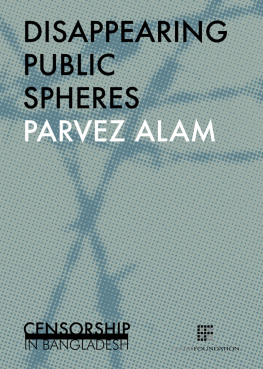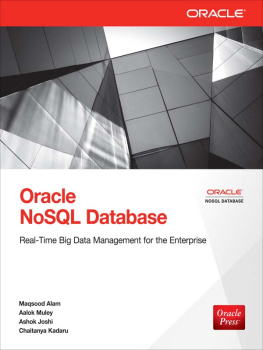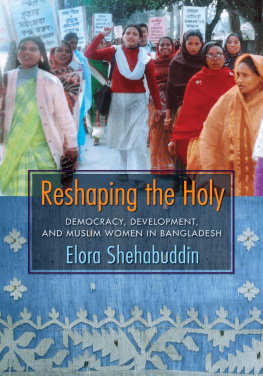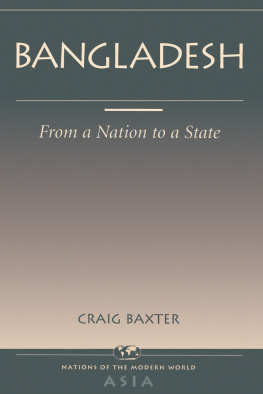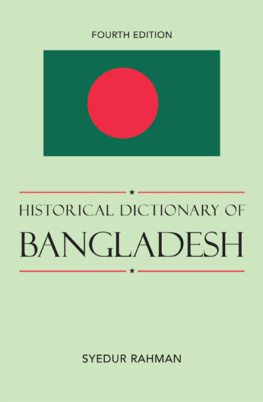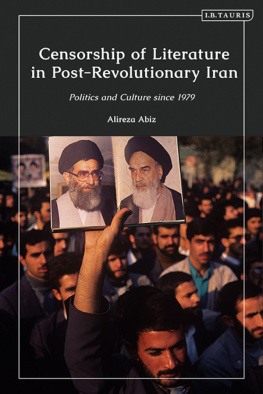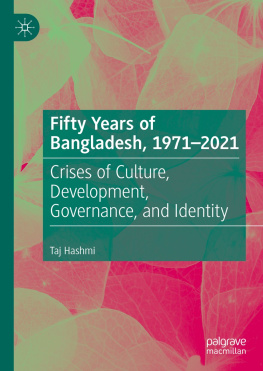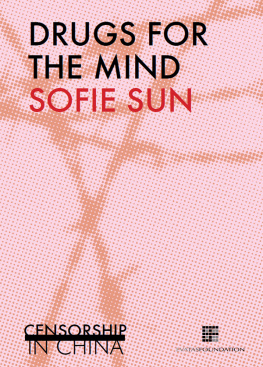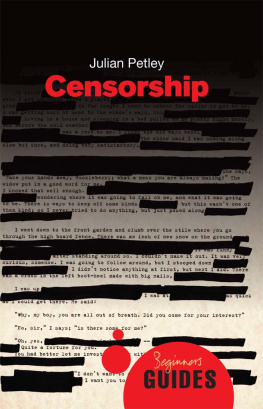Parvez Alam
DISAPPEARING PUBLIC SPHERES
Censorship in Bangladesh

Eva Tas Foundation | Amsterdam
Introduction
Het doel van de staat is de vrijheid I only managed to read the sentence engraved at the bottom of the Baruch Spinoza monument that stands at Zwanenburgwal, just in front of the City Hall of Amsterdam. I did not understand what it means; it was just my second day in Amsterdam and I had zero knowledge of the Dutch Language. It means The purpose of the State is freedom, my Dutch friend translated. Now, that was familiar. Its a famous quotation from Spinozas once infamous and highly controversial book Theologico-Political Treatise (Tractatus Theologico-Politicus). It was also more than familiar; words like State and Freedom made me wonder. They made me nostalgic, reminded me of lots of things. Reminded me of things that happened in the past, in my own lifetime and in the past when I was not even born. I remembered that Spinoza was expelled by the Amsterdam Municipal Authority after he was censured by the Jewish community of Amsterdam in 1656. And now his statue stands in front of the municipal building of the same city from which he was expelled. Theologico-Political Treatise, the book that contained this famous proclamation The purpose of the State is freedom, was also banned by the Dutch government in 1674 along with Thomas Hobbes Leviathan.1 The state in which Spinoza lived could not provide much freedom for his thought and expression. Things have changed in Europe since then, especially when it comes to freedom of expression. Although many fear the world including Europe is moving in a different direction these days, where I come from freedom has really become scarce recently. For the state that was born in 1971 with the name of Peoples Republic of Bangladesh, freedom was certainly its highest purpose at birth. Thats why we call the war that gave birth to it the Liberation War. And it was not just liberation from a foreign country or economy, but also from its military rule and sectarian policy that rarely upheld freedom of any kind as a value.
I wrote a book called Shahbager Rashtroprokolpo (State Project of Shahbag) few years ago, in which I tried to analyze the purpose of founding of our state, where was it supposed to head, and where it is heading now. It was supposed to be a secular state that upholds values like freedom of religion and opinion. Democracy was another goal, which was non-existent when the country was called East Pakistan. Both secularism and democracy became two of the four basic principles of the constitution of the new-born country. The poverty-ridden country has struggled to uphold such values since its birth. But recently values like secularism and democracy have become vulnerable to an extent quite unprecedented in the history of the country. These values now remain mostly on paper, not in reality. Freedom of religion and expression came under threat from both the ruling regime and Islamist terrorists. The tragic drama that unfolded in the last few years made the life of writers and activists such as me vulnerable, and that is why I was now standing in front of the statue of Spinoza. Otherwise I would have been in Bangladesh right now doing my thing, writing something else rather than this book. As I said, the statue of Spinoza reminded me of so many things, things that also happened in the past when I was not even born. My mind pondered the history of the Spanish inquisition, something that forced Spinozas ancestors from their home in Spain to seek refuge in Amsterdam.2 Yes, Spinoza was the descendant of the refugees. Europe should remember such past history while it faces the current refugee crisis born out of the ongoing war in the Middle East.
If you want the present to be different from the past, study the past, is another famous quotation from Spinoza. Well, this is not the only reason I find it important to study the past. I have written a couple of books about the history of Islam because it was a burden that as a Bangladeshi human being I had to take up. Both the West and Islam hold inescapable discursive hegemony over our lives, and we have to make them a matter of knowledge in our own language if we want to stand any chance in the crisis that is unfolding all over the world. I love reading about the past; I am passionate about the history of ideas. That made it easier for me to take up this burden. That is why I wrote my first book on the history of the Islamic golden age, the rise and demise of the great philosophical and scientific culture in the medieval Muslim world. So, standing in front of the Spinoza monument also reminded me of Ibn Rushd, who is known as Averroes in the West. Ibn Rushd lived in the 12th century, in Muslim Spain which was called Al-Andalus back then, the land where Spinozas ancestors lived. He was a polymath, a great Aristotelian philosopher, an Islamic law expert and probably the first Muslim feminist. He also held the position of chief judge in Cordoba. But Rushd was banished to an island in his old age on a charge of blasphemy, although the real reason behind his banishment was political. Many of his books were burned, only a few of his original Arabic works survive in our time. Fortunately for us, many books written by Ibn Rushd were translated during his lifetime. Michael Scot, a 12th century Scottish scholar, translated his work from Arabic to Latin. During the 13th century Jacob Anatoli translated many books by Ibn Rushd into Hebrew, and was later invited to Naples by the Holy Roman Emperor Frederick II. These Hebrew books were later translated into Latin and acquired immense popularity. These Latin translations of Averroes work led the way to the popularization of Aristotle. 3 Averroes commentaries on Aristotle were the foundation for the Aristotelian revival in the 12th and 13th centuries in Europe. Moses Maimonides and Samuel Ben Tibbon were younger contemporaries of Ibn Rushd. Maimonides was also born in Cordoba, Ibn Rushds home town. Both of them were immensely influenced by Ibn Rushd4. The Cordoban Caliphate was one of the most multi-cultural and pluralistic societies of its time. The fall of Ibn Rushd also marks the end of the golden age of Islam to some degree.
Some similarities between Ibn Rushd and Spinozas thought are remarkable. Spinoza was probably familiar with Ibn Rushds philosophical claims through the Jewish Renaissance Averroist (follower of Ibn Rushd) Elijah Delmedigo, whose book The Examination of Religion can be found in Spinozas library5. Maimonides is probably another source through whom Spinoza could be familiar with Ibn Rushds ideas. However, when it comes to Spinozas view on philosophy and religion, his thoughts are closer to Ibn Rushd than Elijah Delmedigo or Moses Maimonides. According to Carlos Fraenkel, Spinozas approach to the relationship between philosophy and religion in the writings preceding the critique of religion in the Tractatus Theologico-Politicus in a sense radicalizes the stance on philosophy and religion advocated by Ibn Rushd in his chief philosophical-theological work, the Fas.l al-maql (Decisive Treatise). We should bear in mind such complex and multicultural history of the development of the ideas of enlightenment, in a world that is now considered by many to be a battlefield for the clash of civilizations. But I do not intend to write the history of such distant past in this book. I would rather write the history of a recent past, which I had to live through. Standing in front of the Spinoza monument reminded me mostly of the people who were my friends and colleagues, people with whom I agreed, disagreed and agreed to disagree on certain points, those who were killed, jailed or had to flee from Bangladesh. This is when I decided to write a book that would contain their history, and the history of the growth and demise of new public spheres in Bangladesh.

